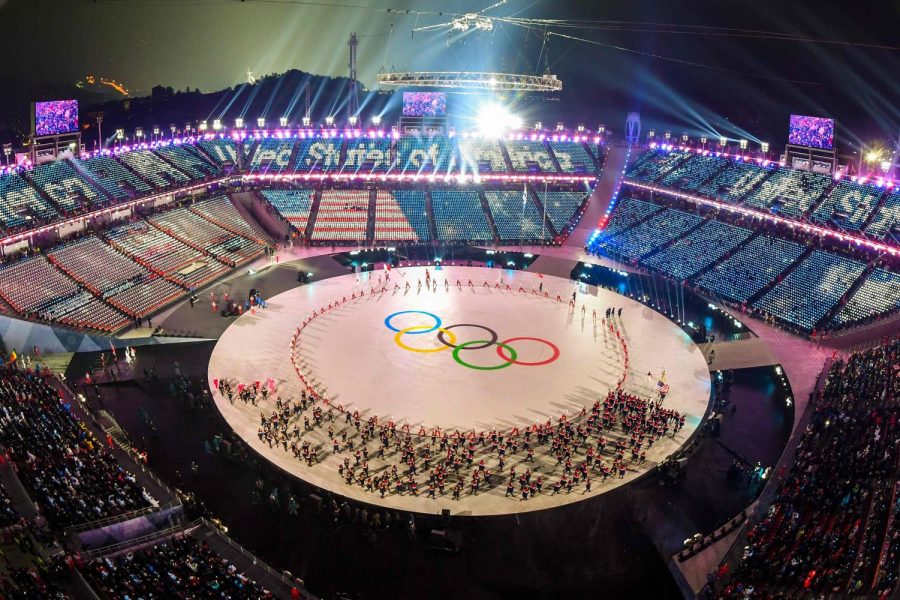Why are cities reluctant to host the Olympics?
The Olympics. Millions look forward to this exciting time of the year in which athletes compete for highly desired medals, however behind the scenes the cities in which these games are hosted often take a negative blow.
May 3, 2021
A parade of athletes and idols march through a grand stadium. Billions of people watch, both from home and in person, and it seems as if the entire world comes together in unity. Who wouldn’t want to be a part of this? This is what the majority of the world sees when watching the Olympics, however, for some of the host cities, the games can be more of a burden. This huge event takes a heavy toll on both the economy and the environment.
The financial dilemma begins even before a city is chosen. In order to be a candidate for the games, the city has to pay for a bid. This first step already requires the city to pay $100,000. Once it’s determined that the city can be a candidate and passes the second phase of the bidding process, it costs an additional $500,000. This is just the beginning of the lasting damage that can be done to the economy of that city.
It’s not surprising that the Olympics are extremely expensive, costing billions of dollars every year it occurs. As outside spectators, we don’t often think about how this affects the host city, but this heavy demand can have a significant financial impact. For starters, in order to pay for this event, the city may need to raise taxes. Many cities need to improve and provide transportation, such as airports, roads and housing for the athletes and guests. In 2000, Sydney spent 4.6 billion for the Olympics, with 11.4 million coming from taxes.
Part of the city’s responsibility is to build the stadium, and while during the games these facilities may seem worth the money, many cities have found no practical use for them afterward. The stadiums are expensive to upkeep, so many are neglected and fall into shambles soon after the Olympics are over. The 109 million dollar Pyeongchang stadium that held the 2018 Winter Olympics was destroyed right after the closing ceremony and never used again. Many felt that the money could have been put towards a more practical use and that spending it on something so short term was an unnecessary waste.
If the burden of taxes wasn’t enough, 6,600 families had been or were in danger of being evicted in the 2016 Rio de Janeiro Olympics. When a particular group of people in Vila Autodromo refused to leave their home, they were forcibly removed by the police in a violent skirmish. This is just one example of the 2 million people who have been displaced by the Olympics. Along with Rio de Janeiro, Seoul, Barcelona and Atlanta have been only a few of the many cities that have had thousands of people’s lives drastically changed for the sake of the Olympics.
The Olympics have the ability to turn the economy of a city upside down, but the reconstruction and development needed to be a host can also have a detrimental effect on the environment. Along with the masses of tourists comes an increase in air pollution, due to the crowded roads, and busy airports.
The destruction of Mount Gariwang is one incident that stood out to many people. The protected forest was torn down to be used as a ski route. After the Olympics took place, the trees were replanted, however, the damage was still done. Another famous case was the Sochi Winter Olympics. Many felt Sochi National Park was not properly protected amidst the construction that took place. According to Igor Chestin in the article Sochi Olympics have left a trail of environmental destruction,“the most symbolic failure of the 2014 Winter Olympics came before even a brick was laid when the government decided to host the games inside the Sochi National Park”. While the Olympics make an effort to prevent damages such as these from occurring, in many cases, people have questioned how well they are doing this. Certain cities like Innsbruck, Rome, Oslo and Hamburg, saw the destruction that the Olympics caused in other cities and rejected their candidacy for hosting.

Being part of something as influential as the Olympics is bound to have a drastic impact, for better or worse. Bigger cities such as Los Angeles and Paris that are already equipped to deal with heavy tourism might be better prepared to handle them well, but smaller cities may need to make big changes they aren’t ready for.
While at first glance an opportunity to have the Olympics right in your hometown seems like something you would want to snatch up right away, but when you delve more deeply into what goes on behind the scene, the decision may not seem so obvious.
Despite the ramifications of hosting the games, some cities, especially those with the infrastructure in place to begin with, benefit tremendously. It can boost the economy with tourists and new transportation and gives the locals a sense of pride in their city. However, it’s important to understand the damage that can also occur and why people are reluctant to host these globally admired games.
















